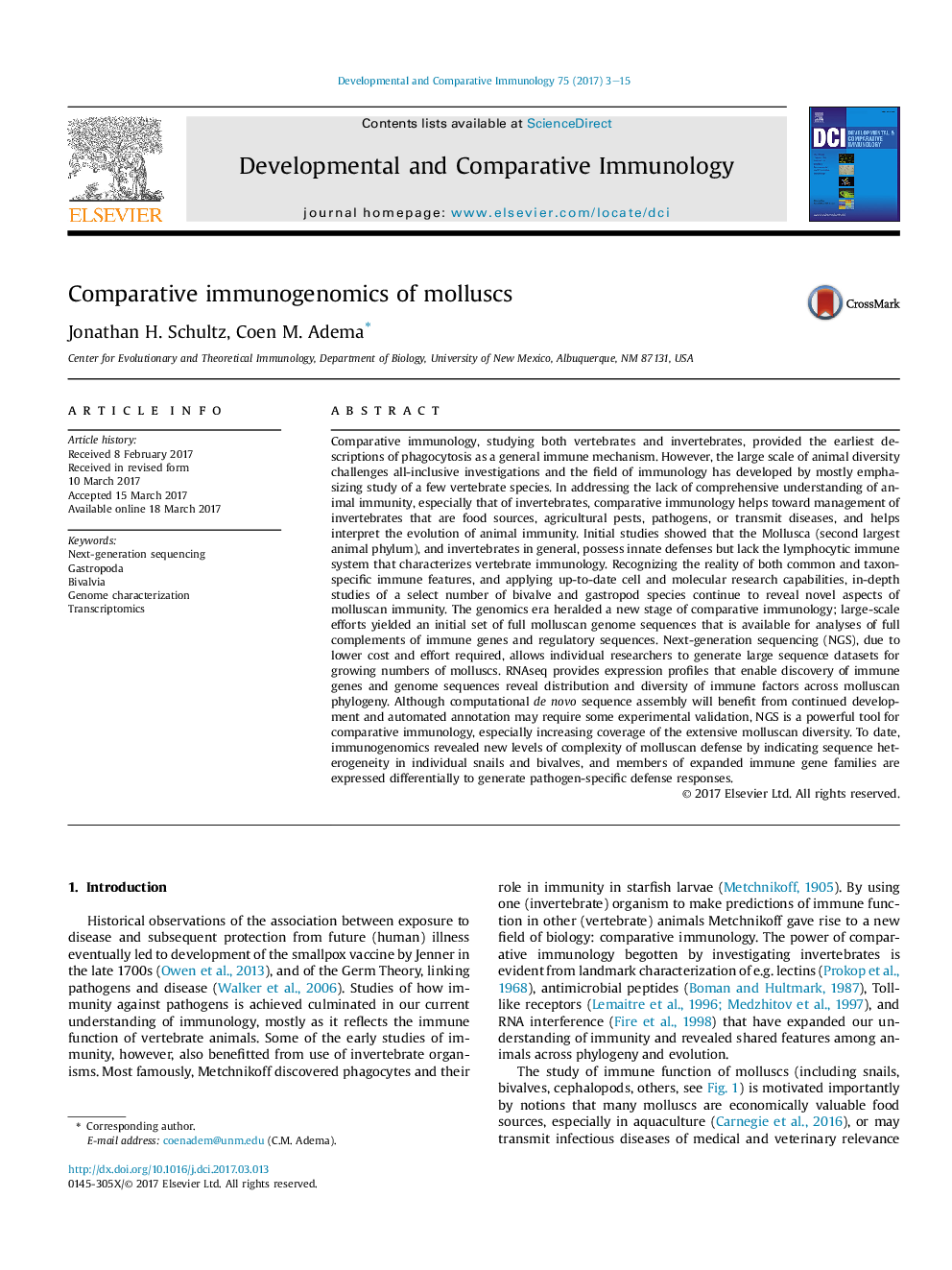| کد مقاله | کد نشریه | سال انتشار | مقاله انگلیسی | نسخه تمام متن |
|---|---|---|---|---|
| 5539966 | 1553557 | 2017 | 13 صفحه PDF | دانلود رایگان |
- Historical review of molluscan immunity prior to development of modern techniques.
- Coverage of species-specific gene complements for comparative immunology.
- Identification of lineage-specific immune capabilities is achieved with NGS.
- NGS informs on general features of molluscan immunity.
Comparative immunology, studying both vertebrates and invertebrates, provided the earliest descriptions of phagocytosis as a general immune mechanism. However, the large scale of animal diversity challenges all-inclusive investigations and the field of immunology has developed by mostly emphasizing study of a few vertebrate species. In addressing the lack of comprehensive understanding of animal immunity, especially that of invertebrates, comparative immunology helps toward management of invertebrates that are food sources, agricultural pests, pathogens, or transmit diseases, and helps interpret the evolution of animal immunity. Initial studies showed that the Mollusca (second largest animal phylum), and invertebrates in general, possess innate defenses but lack the lymphocytic immune system that characterizes vertebrate immunology. Recognizing the reality of both common and taxon-specific immune features, and applying up-to-date cell and molecular research capabilities, in-depth studies of a select number of bivalve and gastropod species continue to reveal novel aspects of molluscan immunity. The genomics era heralded a new stage of comparative immunology; large-scale efforts yielded an initial set of full molluscan genome sequences that is available for analyses of full complements of immune genes and regulatory sequences. Next-generation sequencing (NGS), due to lower cost and effort required, allows individual researchers to generate large sequence datasets for growing numbers of molluscs. RNAseq provides expression profiles that enable discovery of immune genes and genome sequences reveal distribution and diversity of immune factors across molluscan phylogeny. Although computational de novo sequence assembly will benefit from continued development and automated annotation may require some experimental validation, NGS is a powerful tool for comparative immunology, especially increasing coverage of the extensive molluscan diversity. To date, immunogenomics revealed new levels of complexity of molluscan defense by indicating sequence heterogeneity in individual snails and bivalves, and members of expanded immune gene families are expressed differentially to generate pathogen-specific defense responses.
Journal: Developmental & Comparative Immunology - Volume 75, October 2017, Pages 3-15
